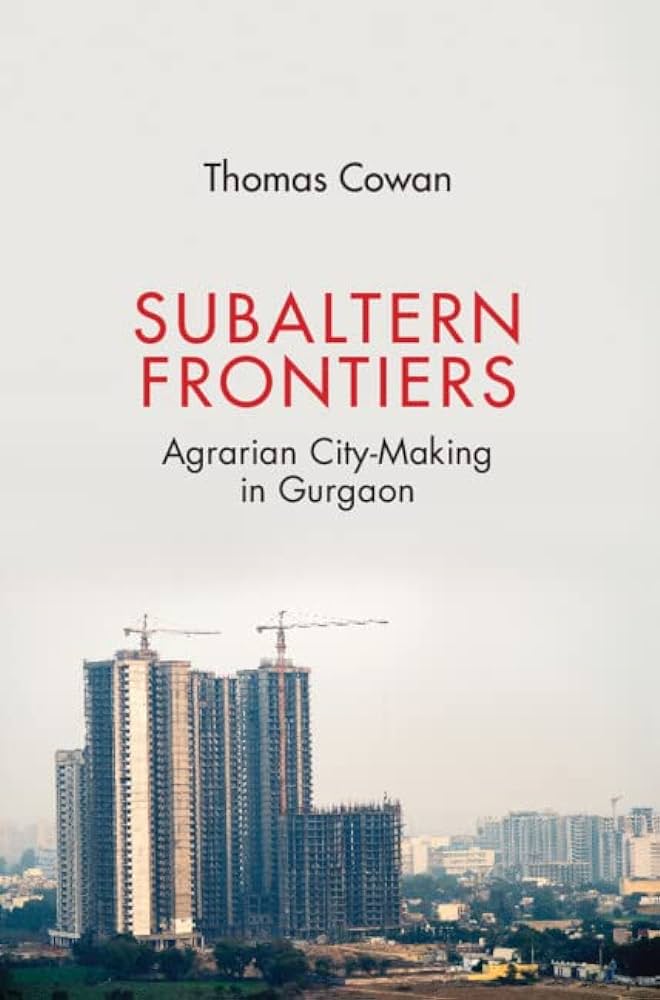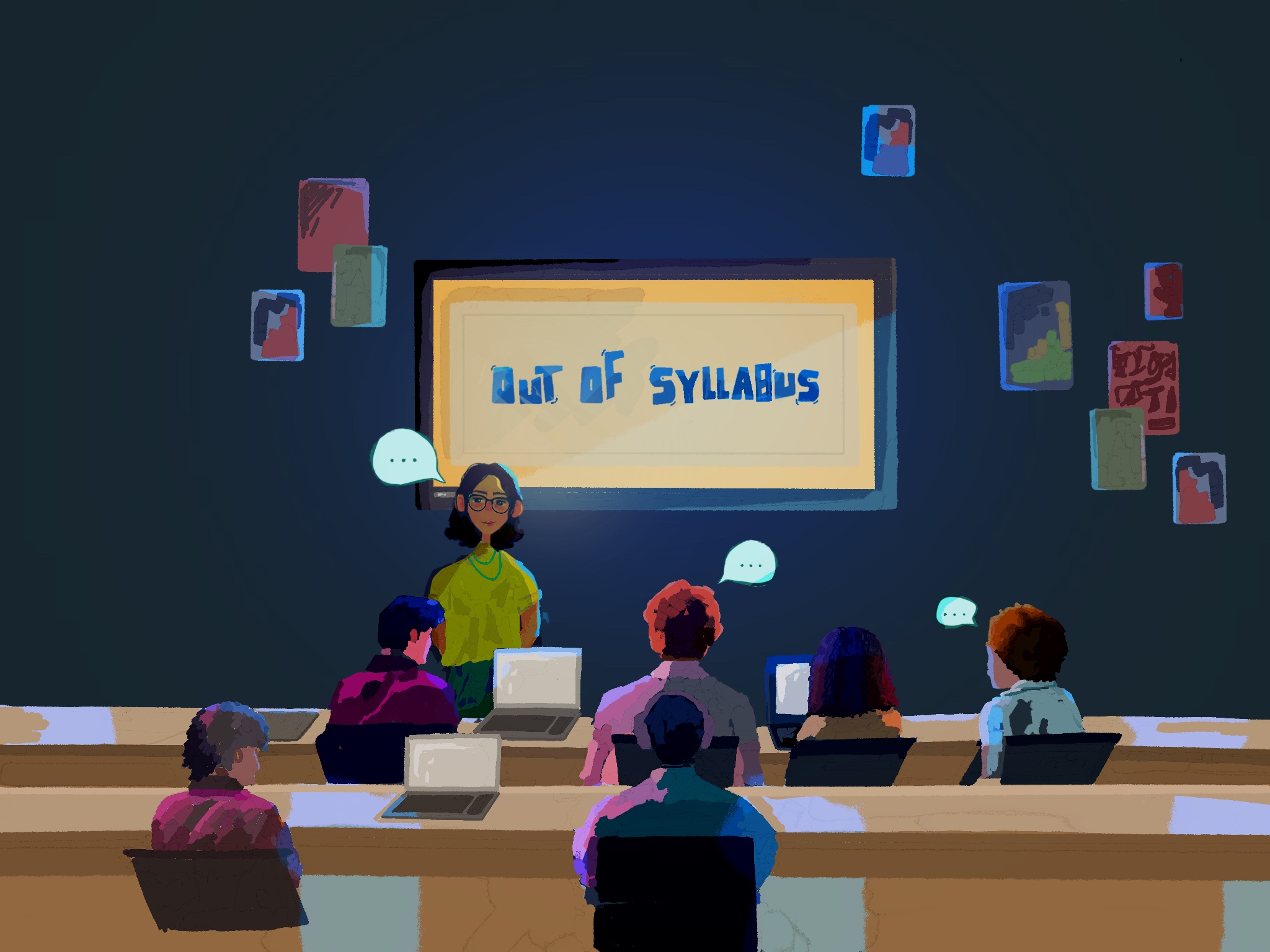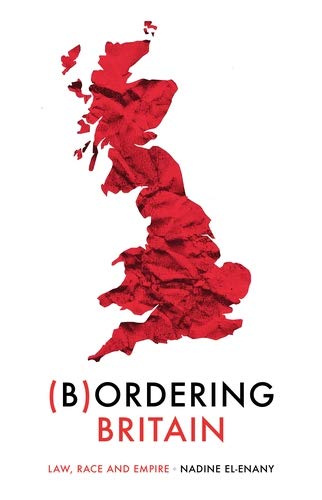I
n the summer of 2009, as a graduate student at a US anthropology department, I, Atreyee, returned to Calcutta (a city I had grown up in) to a region surrounding the city across the river Hooghly to do what goes in the discipline as “fieldwork”. I called this return anthropology (Majumder, 2019: 20-23) and not native anthropology. “What kind of world would it have to be for anthropologists not to have to travel across the world to get a degree, only to return home to find a field?” – I pondered upon this absurdity (Majumder, 2018). It was not ethnography enabled by any kind of natal connection – while growing up in Calcutta, I had never been across the river let alone know any people there. I was a stranger as any other. But yes, I spoke, read and wrote Bangla – a linguistic advantage of being a returnee. In this essay, we wish to reverse the return-arrive relationship by talking about a reading group called Out of Syllabus that we run in our university in Bengaluru, India that primarily teaches law. Here we create the opportunity for participants to encounter strangers from the world of thought – a kind of fieldwork by itself.
What does it mean for students in an elite law school in Bangalore (a place of privilege within the nation-state, postcolonial India that is nested in the semi-periphery of the world), reading texts by French and German social theorists in an attempt to make sense of a theoretical world predominantly produced by the West, while feeling the compulsion to show some fidelity to their postcolonial-ness by reading authors from Africa? This bind of negotiating our postcolonial “otherness” by simultaneously reading “western” theory and trying to unshackle those very chains is typical of the postcolonial condition. As Leela Gandhi has argued, postcolonialism remains perpetually caught between its “political and chronological derivation from colonialism, on the one hand, and its cultural obligation to be meaningfully inaugural and inventive on the other” (Gandhi, 2019: 6).
It has been argued before that the task of decolonizing philosophy/theory, which remains dominated by “dead, white men”, does not lie in simply diversifying the field by including works of “others” – which are made visible through markers of difference like gender, race, caste, language, nationality, religion (see also Maldonado-Torres and others, 2018). To the contrary, Robert Young, in his strong defence of postcolonialism, critiques the creation of the “other” in and by postcolonial theory. He argues that there should be no “other” as such. The idea of the “other” is itself a product of the colonial strategy of exclusion that postcolonialism seeks to critique (Young, 2012: 37).
Our reading group is an attempt to get over this very obsession with the “other” – to be able to articulate postcolonial and other forms of difference in more creative, global, universal ways. We run our reading group in the hope that together we can reach different answers to the question “who are we?” We consciously try to move away from predictable categories through which to answer the question – gender, caste, religion, language, ethnicity, nationality – all neat markers of identity. We also try to avoid the assumption that someone else’s theory, emerging from particular historical contexts, can become our own in a supposedly transparent act of reading and discussion. We proceed with the assumption that nothing is our own, and therefore, with the possibility that we may embrace everything.
In this essay, we speak of our recent experiment of curating a series entitled “History of Ideas” over the last six months. In the first part of the series – which we called “Emergence of the West” – we read texts to trace a loose genealogy of the rise of the West as a politically charged category, starting from excerpts from the Bible through St. Augustine, St. Paul, St. Francis of Assisi, Locke and Hegel. In the following term, we shifted our gaze to the non-West and investigated the intellectual production of the colony – significantly, a racialized Other – as a category through Marx, Gramsci, Freud, Fanon, and Ngugi wa Thiong’o.
In our discussions across both terms, we confronted cognate categories emerging from these texts such as universalism, freedom, and the human condition. The categories of the “West” and the “Postcolony” we had created while curating the series seemed to diffuse into each other when it came to their intellectual ambitions – both sets of texts had an aspiration towards universalism and some sort of Freedom, even as their formulations were different. Thus, while in the first sub-series, the Bible beckoned its readers to “put on the armor of light” (Romans 13:12), and Hegel announced that the World-Spirit was now “Free”, “True”, “Eternal” and “Universal” (Hegel, 2001: 430); in the second, Marx argued for a total “human emancipation” (Marx, 1978: 26-52), and Fanon sought to reclaim the universality of Reason (notably, the meta-category of Western Reason) for the Black mind and body (Fanon, 2008: 89, 101).
Simultaneously however, reading someone like Ngugi (1986) who argues against the universalization of a foreign language and its idioms (in his case, English while growing up in a hyphenated Kenya), we – postcolonial subjects ourselves – found ourselves asking: is the burden of the postcolony to retreat from what has come to be the universal and talk about its own particulars? Does the redemption or freedom of the postcolony lie solely in bringing to focus its Difference with the West; or is there a possibility of imagining universal Freedom without obfuscating the historical contingencies of the postcolony, or put differently, of thinking universals while being particular?
Why should a postcolonial subject whose experiences are not captured by Hegel still read him? Someone might turn around and say: why shouldn’t they? But that’s not the question we asked. The question for us was and is – why should a postcolonial subject who wants to think and write from their sense of situatedness that comes from a specific historical-cultural contingency, engage with something that has been problematically universalized as “theory” while itself being specific to a cultural location, that is Europe? And should they choose to do so, can the postcolonial subject still harbor aspirations to transcend these markers of particularity and make universal claims themselves?
I, Manhar, predictably raised in a middle-class environment to be a professional – a doctor, a civil servant, or a litigating lawyer – happen to like theory. For some reason, a class that reads Foucault or Agamben or Mbembe excites me in a way that a class in Indian constitutional law or Indian history doesn’t. Recently, I have also started learning French even as I am beginning to forget the script in which my mother tongue Punjabi is written. A possible (and perhaps justified) reading of this phenomenon is to point to the obvious intellectual, cultural, and psychological after-life of colonialism that forever entraps the postcolonial subject in a race to learn the idioms of the West. The solution then, which a first reading of Ngugi’s Decolonising the Mind seems to offer, is to shun this colonial baggage and “rebuild” native episteme, from native experiences, in native language. We believe, however, that such a nativist interpretation reproduces the same hegemonic logic of the postcolonial scholar being reduced to their particular location. What then might be another solution to this question? In our university reading group Out of Syllabus, we try to come up with one.
I, Atreyee, have a long-forgotten law degree and a cultural anthropology doctorate from an Ivy League university. I now teach a combination of sociology, anthropology, and social theory in the same university of which I am an alumna. Like Manhar, I find myself addicted to the pursuit of universal categories and to the study of Theory with a capital T. If universals have the power to make us unmoor our narratives and horizons from the shackles of particulars, why should only westerners have that peculiar pleasure? With that conviction and quarrel not with universals themselves, but with that colonization of the power to think in universal terms by western universities, I continue to teach Hegel and Marx and Gramsci and Ngugi.
We ended this term’s reading group sittings with a recitation of the Pakistani Marxist poet Faiz Ahmed Faiz’s poem Aa Jao Africa:
“The earth’s heart, Africa, beats with mine,
The river dances, the woods keep time;
I am Africa, I put on your mask,
I am you, my step is your lion tread.”
In this poem, I believe the poet is conducting an anti-anthropology. He refuses the mantle of his Pakistani, South Asian identity, he beckons to the wildcard category of Africa to enable his liberation. He says: I am Africa. Is this only an instance of South-South cooperation? I think it is a desperate cry for other universals. My continuing argument with current anthropology is its routine condemnation of the universal in favor of the particular. I refuse to think and/or be a particular. My students and I wish to think on large canvases in the wilderness of ideas and domesticate others’ ideas as our own as and when we find it nourishing. We gather at our reading group to do precisely this.
Our reading group often refracts the ongoing conversation between the two of us on the production of universal categories, and their relationship with historically situated particulars (Majumder and Bansal, 2023). The universal-particular debate, mediated mainly through the prism of Difference, has long been the subject of postcolonial studies. In her introduction to a collection of essays entitled The Postcolonial and the Global, Revathi Krishnaswamy expresses the tension between the universal and the particular, the abstract and the concrete, the global and the local through a “productive confrontation” between globalization studies and postcolonial thought (2007: 4). She argues that the postcolonial emphasis on difference does not take away from the value of universals and globality. To the contrary, the postcolonial positionality allows us to think in a manner such that “to be global is first and foremost to be postcolonial and to be postcolonial is always already to be global” (Krishnaswamy, 2007: 3). That is to say - the ambition of the postcolonial subject is not, necessarily, to return to “native”, premodern/precolonial traditions and knowledge or to look for “alternative modernities'', but to puncture the claim that modernity and all that comes with it is the sole property of the West (Krishnaswamy, 2007: 7-8).
In Dipesh Chakrabarty’s classic formulation, universals are simply placeholders that are occupied, at different points in time, by culturally located engagements of what he calls History 1 and History 2. History 1 is a “universal” and defining of capital’s “being”, while History 2 represents diverse ways of relating to the world and partakes in capital’s “becoming” through constant engagement with History 1. Chakrabarty asserts that there is no true “universal” of capital, there is merely “forced globalization” of its European, Enlightenment iteration (2000: 667–669, 675–676; see further, Chakrabarty 2007). As valuable as this endeavor of showing how so-called universal ideas are etched in their particular contexts is (see Bansal 2023), the argument of decolonization is also aimed at showing how these ideas emerge from historical interconnections between the “centre” and the “periphery”, the “west” and the “non-west”, the “metropole” and the “colony” (McClure 2020). In her 2019 epilogue to Postcolonial Theory, Leela Gandhi articulates this messy arrangement of elements through the metaphor of jugaad – a colloquial Hindi word that roughly translates to a make-do, but effective, arrangement. Gandhi argues that postcolonial critique is an assemblage or jugaad that includes within itself critique of Western theory from within (2019: 177-178). Ideas everywhere, we might say, are always-already a work of jugaad. The postcolonial critique teaches us that the so-called “western” theory was never solely or wholly western to begin with – it was, and remains, a product of global interconnection.
To add to this, when we read Theory in new and creative ways by putting together different texts from different time-periods, being read by a group of differently situated people – as our reading group tries to do – we produce what Gary Wilder calls “historical constellations” – the making of non-self-evident connections across thinkers, time-periods, and social locations (2015: 13-14). In his provocatively titled book Freedom Time, Wilder takes on a similar challenge through a close reading of Césaire and Senghor, arguing that theirs was an attempt to “unthink France” as a unitary, territoriality defined, nation-state, and offer instead a new universal, epochal, emancipatory project (2015: 7-8). Wilder reminds us that anti-colonialism requires us to move away from the assumption that only the West think globally while colonized peoples think “nationally, locally, concretely” (2015: 8). Thus, Césaire and Senghor should not be treated as foreigners to modern philosophy, but thinkers who aspired to unthink, rethink, and reformulate “supposedly European parameters of modern thought” (2015: 9). The project now, he tells us, is not to “provincialize Europe but to deprovincialize Africa and the Antilles”. The postcolonial critique is not limited to “unmasking universalisms as covert European particularisms” but “challenging the assumption that the universal is European property” (2015: 10). It is to challenge the easy mappings of “dwelling” onto “thinking”, and changing the location of dwelling itself from that of the nation-state to the world at large (2015: 10). To invoke Mbembe, the project of decentering knowledge production is not to further deepen the difference between the “postcolony” and the “world”, but to make possible the demands for a new universalism (2017: 8).
In his introduction to the remarkable volume Changing Theory: Concepts from the Global South, Dilip Menon highlights the amnesia produced by colonialism towards native forms of knowledge, and the reverence towards western thought and theory (2022: 1). Borrowing from Partha Chatterjee’s coinage of moments of departure, maneuver, and arrival, Menon argues that “we stand now at the threshold of a moment of arrival” – where we start with the premise of thinking and theorizing from the Global South, as opposed to “merely critiquing the shortcomings, prejudices, and occlusions of a theory that comes from elsewhere” (Menon, 2022: 4, original emphasis; 7). He (Menon, 2002: 8) reminds the reader that his provocation is not a call for a retreat to nativism but of “choosing our conversations after arriving at a true recognition of what we have to say.”
In reading western theory, our reading group may be said to be located somewhere between the moments of maneuver and arrival. To be sure, we have not yet begun the hard task of thinking about concepts from the Global South in our own languages, like Menon’s edited anthology does. Nonetheless, it is our conviction that reading and engaging theory that is supposedly “universal” and only precariously “western”, from our particular location, is a necessary first step at any kind of decolonization. We believe that the intellectual imagination that our reading group, located where it is, has been able to provoke shows that the argument of decoloniality is not an argument for a nativist return to thinking solely about one’s particulars. Rather, it is an argument for thinking from the location of our particular circumstances about universals.
Thus, my (Manhar’s) intellectual challenge, as an aspiring postcolonial student of theory, is not to stop learning French while deep-diving into Punjabi literature, merely to perform some kind of fidelity to my socio-historical location. Instead, it is to be able to creatively engage with what has been (problematically) given to me by the West while being informed, as I cannot help but be, by my particularities; and in the process, retain the courage to challenge the truth-claims of this episteme using my unique, historically specific tools. This is what our reading group seeks to achieve as a thought experiment – we read Hegel and Fanon together not to counterpose them as irreconcilable polar opposites, but to see how someone like Fanon writing about the violent psychological after-life of racism can aspire to reclaim “universal” Reason from the hegemony of West. In so doing, the binaries of the West and the Rest can even stand inverted, such that the West becomes the harbour of unreason and neurosis while the Rest inaugurates another Reason. Thus, Fanon writes:
I was hated, despised, detested, not by the neighbor across the street or my cousin on my mother’s side, but by an entire race. I was up against something unreasoned […] I would personally say that for a man whose only weapon is reason there is nothing more neurotic than contact with unreason (Fanon, 2008: 89).
What is striking in Fanon’s writing is the unashamed reclamation of Reason for the Rest which had hitherto been denied as something out of its reach. Following Fanon, we ask: how do we reach for things and concepts that are not earmarked for people like us in the global supermarket of ideas? How do we avoid (following Fanon) being trapped in the echo-chamber of unreason?
Growing up, I, Manhar, – like many in India – came to associate the expression “out of syllabus” with anything that was not to be tested in school exams and therefore with something that, in an educational system obsessed with assessment, was useless. I often asked questions of my teachers that went beyond the textbook, and while some of my teachers brushed those away, others took care to answer my curiosity, but with the caveat that it was “out of syllabus”. In some senses, the expression came to be associated with something that was beyond reach, beyond the imaginative possibility of a middle school kid. In a similar vein, we believe that the name of our reading group is an attempt to take up that challenge of readings things that are “out of syllabus” – not merely because they are not part of our law school curriculum, but because the Theory we try to read – and potentially contribute to – is often regarded as beyond the reach of postcolonial, “native”, “other” subjects. Yet, we persist with an ardent hope that together, we retain the possibility of breaking out of our particular historical and social locations, and imagine our own universals.
Authors’ Note: We would like to dedicate this essay to all those who take out time and show up at our reading group, entertaining the courage to think together and imagine new worlds.
References
Banerjee M (2021) Decolonize Intellectual History! An Agenda for the Capitalocene. In: Journal of the History of Ideas Blog. Available here.
Bansal M (2023) Of Powerful Particulars and Contingent Universals: Freedom, Feminism and Engaged Universalism. The Columbia Journal of Asia 2(1): 35-44.
Chakrabarty D (2000) Universalism and Belonging in the Logic of Capital. Public Culture 12(3): 653-678.
Chakrabarty D (2007) Provincializing Europe: Postcolonial Thought and Historical Difference (New Edition). Princeton: Princeton University Press. First published 2000.
Faiz FA (1971) Africa, Come Back. In: Kiernan VG (translator) Poems by Faiz. London: George Allen and Unwin, pp. 209-212. Originally published 1956. Available here.
Fanon F (2008) Black Skin, White Masks. Translated by Charles Lam Markmann. London: Pluto Press. Originally published 1952.
Gandhi L (2019) Postcolonial Theory: A Critical Introduction (Second Edition). Columbia University Press: New York. First published 1998.
Hegel GWF (2001) The Philosophy of History. Translated by John Sibree. Kitchener: Batoche Books. Originally published 1837.
Krishnaswamy R (2008) Connections, Conflicts, Complicities. In: Krishnaswamy R and Hawley JC (eds) The Postcolonial and the Global. University of Minnesota Press: Minneapolis, London, pp. 2-21.
Majumder A (2018) Fieldwork and the Native Informant: A Review of Culture at Large 2017. In: Cultural Anthropology, Member Voices, Fieldsights. Available here.
Majumder A (2019) Time, Space and Capital in India: Longing and Belonging in an Urban-Industrial Hinterland. London and New York: Routledge.
Majumder A and Bansal M (2023) Season 05 - Episode 01: “Who’s Afraid of Universals? In: American Anthropologist, AnthroAirwaves. Available here.
Maldonado-Torres N, Vizcaíno R, Wallace J, and We JEA (2018) Decolonising Philosophy. In: Bhambra G, Gebrial D, and Nişancıoğlu K (eds) Decolonising the University. Pluto Press: London, pp. 64-92.
Marx K (1978) On the Jewish Question. In: Tucker RC (ed) The Marx-Engels Reader. London and New York: WW Norton and Co, pp. 26-52. Originally published 1844.
Mbembe A (2017) Critique of Black Reason. Translated by Laurent Dubois. Duke University Press: Durham and London.
McClure J (2021) Connected global intellectual history and the decolonisation of the curriculum. History Compass 19(1): 1-9.
Menon D (2022) Changing Theory: Thinking Concepts from the Global South. In: Menon D (ed) Changing Theory: Concepts from the Global South. London and New York: Routledge, pp. 1-30.
Wa Thiong’o N (1986) Decolonising the Mind: The Politics of Language in African Literature. Kiribati: J. Currey.
Wilder G (2015) Freedom Time: Negritude, Decolonization, and the Future of the World. Duke University Press: Durham and London.
Young, RJC (2012) Postcolonial Remains. New Literary History 43(1): 19-42.
Manhar Bansal is an undergraduate student of bachelors in arts and law at the National Law School of India University with an active interest in social theory and philosophy. He is the recipient of the SHA President’s Award for Student Scholarship 2022 and the Hugh Owen Prize for the Best Undergraduate Essay on South Asia 2021.
Atreyee Majumder is Associate Professor, Social Sciences at the National Law School of India University. She earned her doctoral degree from the Department of Anthropology at Yale University. Her first monograph Time, Space, and Capital in India: Longing and Belonging in an Urban-Industrial Hinterland was published with Routledge (2018). Her current research is on the contemporary life of the Bhakti tradition (devotional love for the Hindu god, Krishna) in the sacred geography of Vrindavan in northern India.





















